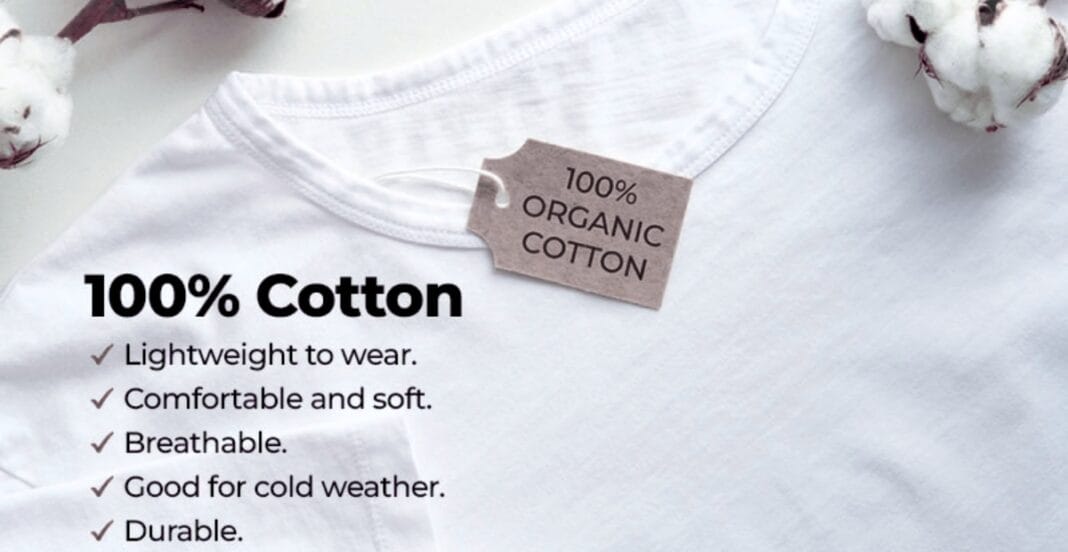Introduction: The Conscious Consumer is the New Cool
In an era of TikTok trends, climate anxiety, and “clean everything,” fashion is having a reckoning. Gone are the days when fast fashion could seduce consumers with $10 tees and weekly drops. Today’s style-savvy generation wants more than aesthetics—they want accountability, authenticity, and alignment with their values. Enter 100% cotton: the unsung hero of the textile world making a major comeback.
Once relegated to basics and boho vibes, cotton is rebranding itself as fashion’s cleanest, most reliable staple. From Gen Z’s eco-activism to millennials’ love for minimalist quality, the momentum around 100% cotton brands is building fast. But this isn’t just a trend—it’s a full-blown cultural shift. And in this blog, we’ll explore why pure cotton is becoming the ultimate fashion flex for the modern conscious consumer.
Table of contents
1. Fast Fashion Burnout: Why Shoppers Are Saying ‘No Thanks’ to Synthetics
For over a decade, polyester and synthetic blends ruled the racks of Zara, Shein, and H&M. But now, shoppers are waking up to the environmental and ethical costs of those $5 tops. Synthetic fabrics, derived from petroleum, don’t biodegrade, shed harmful microplastics, and are often produced under exploitative labor conditions.
Consumers are also experiencing what could be called “fast fashion fatigue.” The endless cycle of disposable clothing has lost its charm. Instead, a desire for slow, thoughtful fashion is on the rise. According to a 2024 ThredUp report, 65% of Gen Z say they’re more likely to buy from brands that prioritize sustainability, and 73% value quality over quantity.
This is where 100% cotton brands shine. They offer an antidote to the chaos: timeless, biodegradable, and gentle on skin and the planet. And unlike synthetics, cotton gets better with age—fitting perfectly into the rise of “slow fashion” and elevated basics.
2. Skin Deep: The Sensory and Wellness Appeal of Cotton
It’s not just about saving the planet—it’s about how you feel in your clothes. Cotton is breathable, moisture-wicking, hypoallergenic, and supremely comfortable. As wellness culture seeps into every aspect of life, from gut health to home decor, clothing is no exception.
There’s a reason why “cloudcore” and “cozy aesthetic” are trending. People want clothes that comfort, not constrict. In a post-pandemic world where loungewear is king, cotton has become the fabric of emotional support. Think oversized 100% cotton hoodies, vintage tees, and soft, roomy button-downs.
Stylish, yes. But also deeply soothing. And in today’s overstimulated world, that matters.
3. Earth-Approved: The Sustainability Edge of 100% Cotton Brands
Cotton, particularly when organic, is a climate-conscious choice. It’s renewable, biodegradable, and requires fewer toxic chemicals when farmed responsibly. Organic cotton farming uses significantly less water than conventional cotton and supports healthier soil.
Of course, not all cotton is created equal. But the best 100% cotton brands are going the extra mile—partnering with regenerative farms, ensuring fair labor practices, and obtaining gold-standard certifications like GOTS (Global Organic Textile Standard) and OEKO-TEX.
Take brands like PACT, Kotn, and ASKET, who are leading the charge in transparency and sustainability. These labels prove that you don’t have to sacrifice style for ethics.

4. Cotton Is Chic Now: From Runway to Streetwear
Forget what you thought you knew about cotton being basic. Today’s designers are elevating it with innovative cuts, exaggerated silhouettes, and luxurious textures. Brands like The Row, Everlane, and even high-fashion labels like Loewe are showcasing cotton on the runway.
Streetwear is also cotton’s playground. Graphic tees, heavyweight cotton hoodies, and tailored cotton cargos are essentials for hypebeasts and normcore enthusiasts alike. Influencers are proudly tagging #100cotton and naturalstyle, building a new wave of fashion identity centered around purity and purpose.
Cotton is no longer just comfy—it’s aspirational.
5. The Trust Factor: Transparency and the Cotton Tag Movement
We’re in the age of receipts, and fashion consumers want them. They want to know where their clothes come from, how they’re made, and what’s really in them. “Made with cotton” won’t cut it anymore. Shoppers are flipping tags and searching for that magical “100% cotton” line.
Brands that embrace radical transparency—like sourcing maps, digital product passports, and clear material breakdown—are winning. Cotton brands, with their straightforward compositions, are naturally positioned to build trust. No mystery blends, no greenwashing, just pure, honest fiber.
6. Built for Real Life: Cotton’s Durability and Versatility
Cotton clothes are made to live in. They age gracefully, hold dye beautifully, and adapt across seasons. From breezy summer dresses to cozy winter layers, cotton does it all.
Durability is especially important in an era of wardrobe minimalism. Capsule collections, curated closets, and mindful consumption rely on pieces that last. A well-made cotton shirt can serve you for years, not months.
And let’s not forget ease of care. Cotton washes well, breathes well, and doesn’t require a dry cleaner’s touch—making it perfect for busy, eco-aware lifestyles.
7. Inclusive by Nature: Cotton Is for Everyone
Cotton doesn’t discriminate. It’s genderless, ageless, and seasonless. It works in menswear, womenswear, unisex collections, and adaptive fashion.
From baby onesies to grandparent-approved button-ups, cotton threads connect generations. It’s inclusive in sizing, too, draping naturally and forgivingly on different body types. As fashion continues to move away from rigid binaries and unrealistic beauty standards, cotton’s adaptability makes it a frontrunner for the next era of clothing.
8. Smart Cotton: Innovation Meets Nature
Think cotton can’t be tech-forward? Think again. Today’s textile engineers are pushing the limits of cotton—creating wrinkle-resistant weaves, stretch-infused knits, and even water-repellent finishes without toxic chemicals.
Startups and research labs are experimenting with smart cotton fabrics that integrate sensors or adapt to temperature changes. It’s where nature meets innovation, proving that you don’t need petroleum to power performance.
100% cotton isn’t old-school. It’s the future—just a cleaner, smarter one.

9. Cotton in the Creator Economy: Influencers Are Leading the Shift
Influencers are trading in flashy, fast fashion hauls for “real outfit” reels. Authenticity sells, and nothing says authenticity like cotton wrinkled, worn, and loved.
You’ll see creators highlighting their favorite fabric basics, vintage cotton finds, and ethical cotton brands in GRWMs and minimalist closet tours. Cotton isn’t just part of the content—it’s the message. Comfort, quality, and consciousness are becoming the new aesthetic currency.
Even resale platforms like Depop and Poshmark are seeing a boom in demand for “100% cotton” filter tags, proving this shift is happening IRL, too.
10. Building a Cotton-Forward Wardrobe: How to Start Now
Ready to join the cotton revolution? Here’s how:
- Read labels religiously:Don’t settle for cotton blends; seek that 100% tag.
- Start with basics:A crisp cotton tee, a button-down, or high-waisted jeans are versatile anchors.
- Support brands doing it right:Look for ethical, certified, and transparent companies.
- Invest, don’t impulse:Choose fewer, better-quality pieces that align with your values.
- Care for your cotton:Wash cold, air dry when possible, and embrace the lived-in look.
Your closet should feel like you and cotton helps it do just that.
Conclusion: Cotton Is the New Cool
In a world chasing the next big thing, sometimes the future is in going back to basics. 100% cotton brands offer more than just clothing—they represent a lifestyle rooted in comfort, consciousness, and clarity.
As we redefine what it means to dress well, cotton is proving itself to be more than a material. It’s a mindset. And in that mindset, the future of fashion is pure, breathable, and undeniably chic.
So the next time you’re shopping? Flip the tag, feel the fabric, and choose cotton. Because the future of fashion is clean, cool, and 100% real.
FAQs:
100% cotton is natural, breathable, and hypoallergenic, making it gentler on the skin and more eco-friendly than synthetic blends, which often contain plastic-based fibers.
Yes, when sourced responsibly, 100% cotton is biodegradable, renewable, and can be grown using sustainable farming methods that reduce environmental impact.
Generally, yes. Cotton is a durable fiber that holds up well with proper care, making garments long-lasting and reducing the need for fast fashion replacements.


